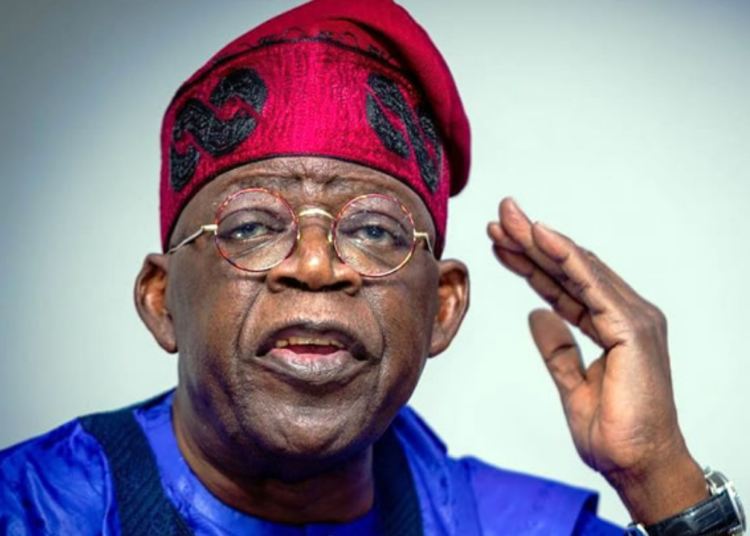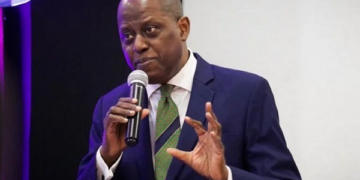Tere have been several conversations about President Tinubu’s ministerial nominees – the people nominated or not nominated, the size of the yet to be formed cabinet and so on and so forth. It has also been widely acknowledged that a President’s list of ministerial nominees embodies several coded messages designed to achieve particular objectives. So how do we deconstruct the possible innuendoes from the list of ministerial nominees submitted to the National Assembly by the President?
The time it took the President to submit the list raises a number of uncomfortable questions. The first list of 28 nominees was submitted on July 27 2023 – a day or two to the close of the 60-day window constitutionally allowed the President to present a list of ministerial nominees to the Senate for screening. The second batch of 19, submitted on August 4 2023, came after the close of that constitutional window, which fortunately or unfortunately did not recommend any punishment for violation. Be that as it may, for a man who repeatedly claimed that being the President of the country had been his life-long ambition, people wonder what he did with all the time between his declaration as President elect on 1 March 2023 and his inauguration on 29 May 2023? It even took a while for him to announce a spokesman for his government.
One possible explanation for the delay in assembling his cabinet could be that President Tinubu prefers to govern with a handful of advisers (official and unofficial) around him than a full cabinet where his personal policy and political preferences will be subjected to more robust interrogation. If this inference is correct, then one can conclude that the President will be better served if such advisers are avoided because virtually all the major decisions he has taken so far do not seem to have benefitted from proper reflection or good knowledge of the issues at stake – from the removal of fuel subsidy on a whim, to the hastily signed Education Loan Act, to the ill-fated N8000 palliative from an $800m World Bank loan and to the one week ultimatum given to the military junta in Niger under his watch. Though aides have sought to save face by arguing that some policy reversals by the President is an indication that he listens, on the contrary, it is more an indications that most of those decisions were taken on impulse. Though it is not unusual for a new government to start on a wobbly note or make initial mistakes, it is important that the government avoids creating an impression of taking decisions on its feet.
Related to the time it took the President to constitute his cabinet, is also its size – 47 ministerial nominees, the largest since 1999. This is especially so at a time of extreme hardship in the country and when there are legitimate concerns about the skyrocketing cost of governance. As a very wealthy man, one of the reservations about Tinubu’s candidacy during the election was whether he would be capable of engineering radical changes in the country, including reducing the cost of governance, given his imperial proclivity and reputation for spending whatever it takes to get what he wants. His supporters countered that Tinubu could surprise everyone because at this stage in his life there is nothing more he needs except to serve the country. The unwieldy size of the yet to be constituted cabinet, and even the quality of most of the members, has once again raised the question of whether Tinubu could commit class suicide and get radicalized by power.
What is also loudly visible from the list was Tinubu’s desire to cement and extend what was generally seen as an alliance between his South West political base and the North-West and North East under Buhari (or more appropriately between the Yoruba and the Hausa/Fulani and Kanuri). Related to this is that Tinubu seems to be keeping his word on cementing Buhari’s legacy – not just with the deterioration in the value of the Naira under his watch but also in the way he treated some ethnic groups. Though Buhari did a lot to speed up the construction of the Second Niger Bridge for which he should really be commended, most Igbos feel that he deliberately set out to inconsequentialize the race and reverse some of the political gains they have made since the end of the Civil War. Quite early in the life of his government, Buhari made it clear that he should not be expected to treat those who gave him 97% votes and those who gave him 5% the same. He consequently described an ethnic group as a ‘dot in a circle’. From Tinubu’s initial appointment of advisers to the number of ministerial nominees for each geopolitical zone to his apparent chumminess with the likes of Asari Dokubo and recnetly Reno Omokri who openly promote Igbophobia, an impression was rightly or wrongly created that he wants to continue Buhari’s policy of deliberately making the Igbo progressively irrelevant in the country’s political calculus. While some will justify the extra slots given to other geopolitical zones (beyond the constitutional requirement of at least one minister for each state of the federation), as rightful rewards for political support, good statesmanship is antithetical to such a practice.
Let me mention that while the issue of political appointment is purely an elite game that adds little or nothing to the material circumstance of the generality of Nigerians, it is nonetheless good for optics, sense of belonging and nation-building. The fact is that every ethnic or regional group is imbued with cultural traits that simultaneously propel and thwart the progress of its members individually and as a collective. For this, rewarding or discriminating against any group cannot materially affect the individual or collective progress of that group. On the contrary, the collective consciousness engendered by such discrimination or homophobia can only imbue or actuate the ‘can do it’ mind-set of its members. For instance did Abacha’s onslaught against the Yoruba in the wake of NADECO’s fight to reclaim Abiola’s mandate stop the progress of the race in those areas they have always excelled? And did Buhari’s barely hidden efforts to belittle the Igbo, especially in the initial stage of his government, stop the race from excelling and failing individually and collectively as they and other groups have always done?
We’ve got the edge. Get real-time reports, breaking scoops, and exclusive angles delivered straight to your phone. Don’t settle for stale news. Join LEADERSHIP NEWS on WhatsApp for 24/7 updates →
Join Our WhatsApp Channel










